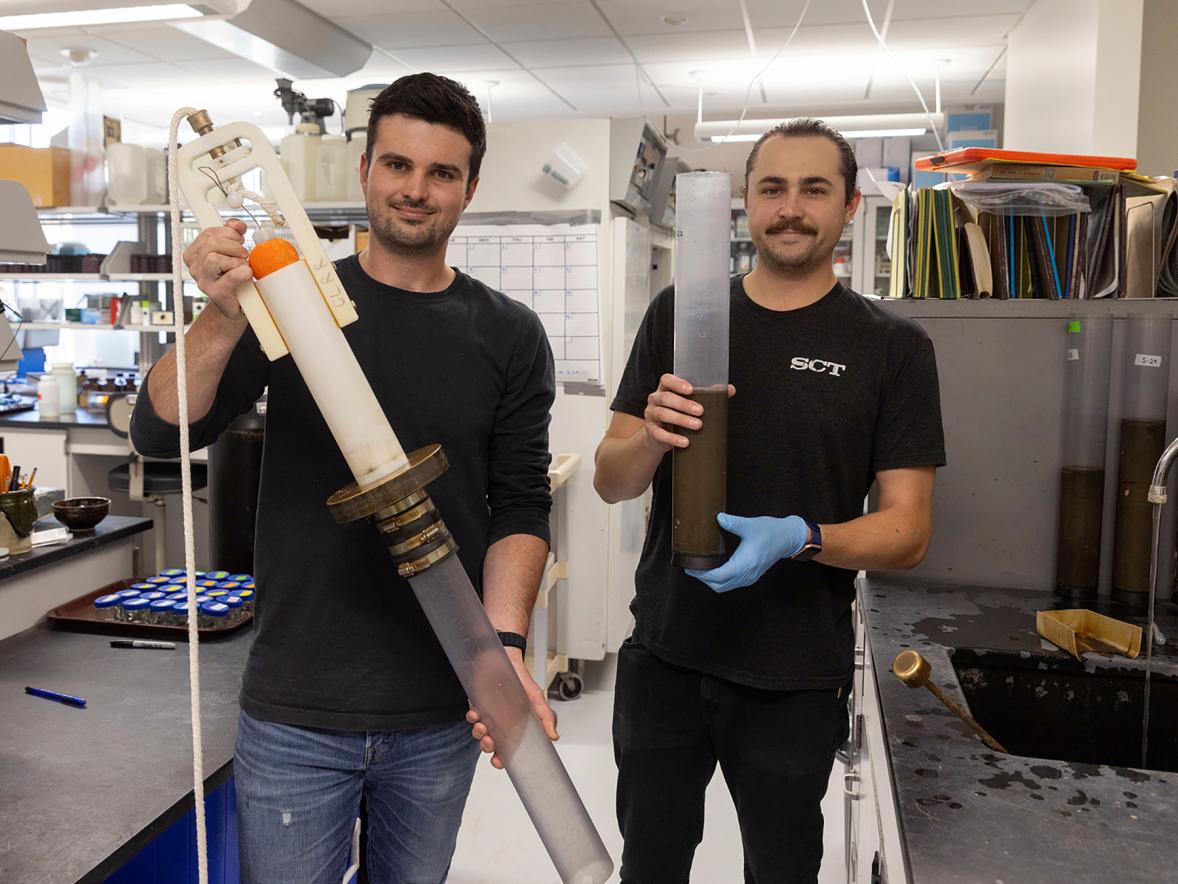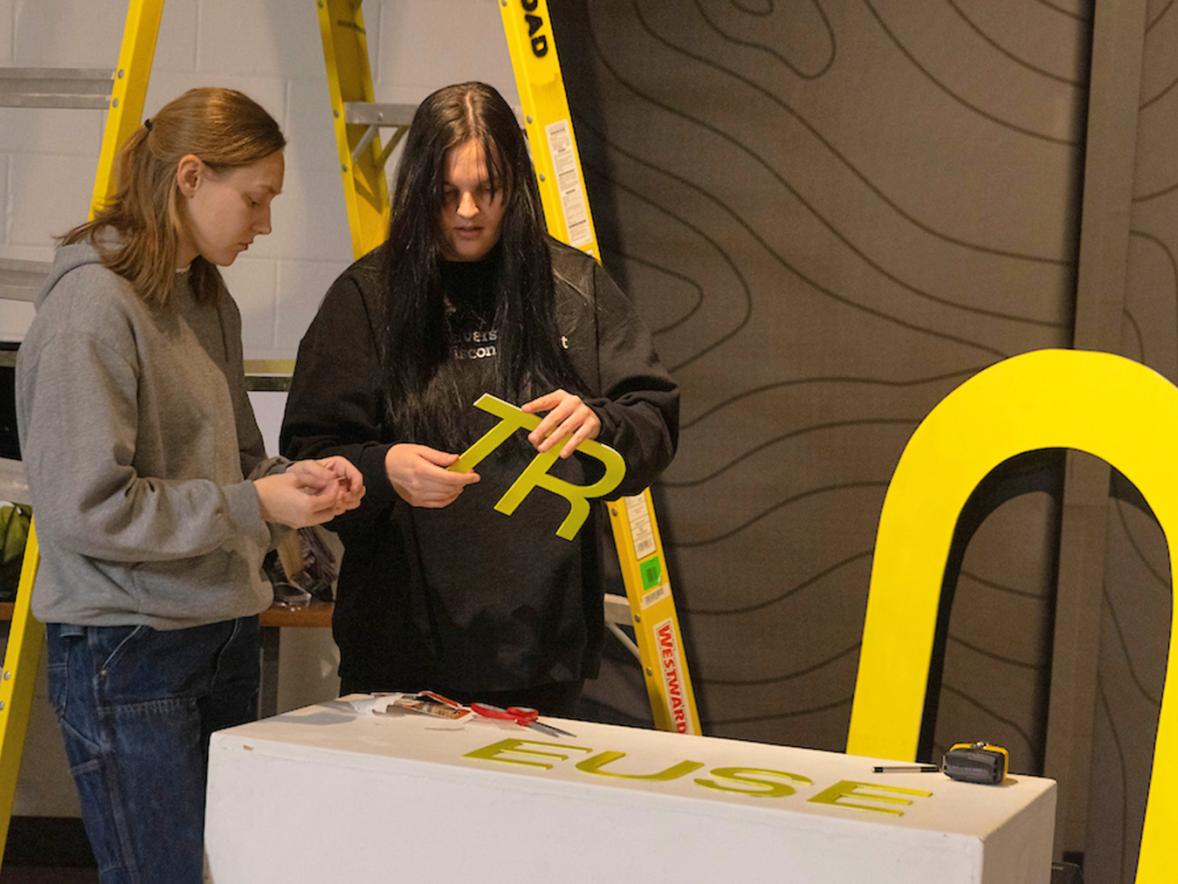UW-Stout can officially add a new “color” to its identity – green.
The U.S. Department of Education has named UW-Stout a national Green Ribbon school, based on its long-term and ongoing efforts to infuse sustainability into operations and the classroom and to create a campuswide culture that advances environmental initiatives.
The Green Ribbon award, a one-time honor, is given annually to a select number of schools, including early learning centers, elementary, secondary and post-secondary institutions. The 2024 winners are invited to a fall recognition ceremony in Washington, D.C. See a video announcing the winners and the list of awardees by state.
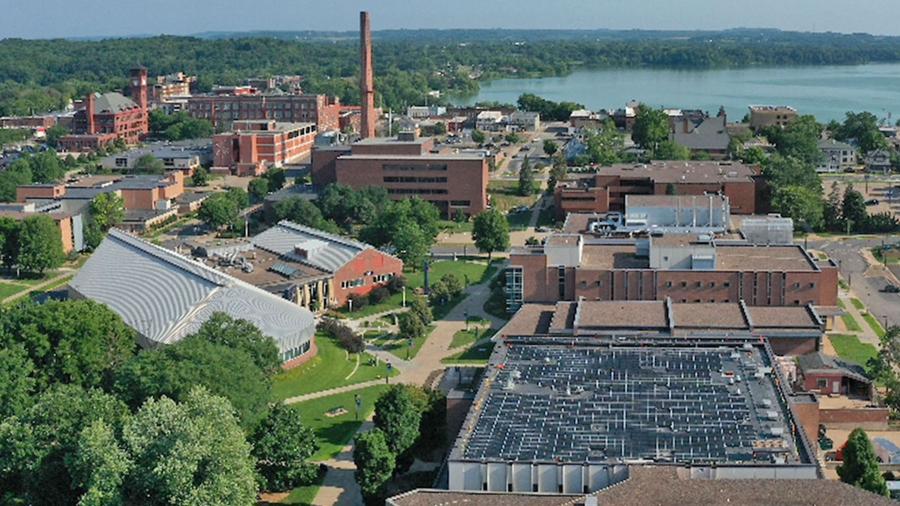
“UW-Stout is honored to receive the Green Ribbon award. This was possible due to our students' investments in Stout's sustainability efforts, our faculty who incorporate sustainability in their curriculum and applied research, and our staff who plan, implement and practice sustainability at the university on a daily basis,” said Erik Guenard, vice chancellor for Business, Finance and Administrative Services.
In Wisconsin, UW-Stout was the only university to be recognized in 2024.
UW-Stout has addressed sustainability in every aspect of operations. In the last 15 years, myriad efforts aimed at sustainability and reducing environmental impacts have resulted in campus emissions dropping by 33%, excluding emissions from commuting.
It was a charter signatory in 2007 of the American College & University Presidents’ Climate Commitment, now called the Second Nature Carbon Commitment, with the goal of achieving carbon neutrality by 2050.
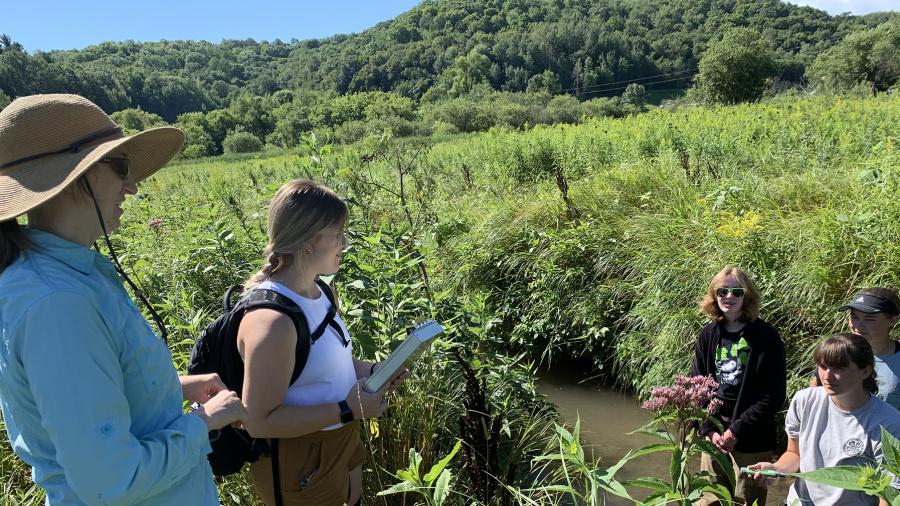
Efforts to reach that goal have included several rooftop solar panel and LED lighting projects to reduce energy use and save money. The latest such project in 2023 will reduce emissions by 1,431 metric tons annually.
“As a member of the UW-Stout community since 2005, I have seen UW-Stout’s commitment to sustainability grow stronger each year through cross-disciplinary applied projects and expanded internal and external partnerships; sustainability has become core to our polytechnic work,” said Glendalí Rodríguez, provost and vice chancellor for Academic Affairs.
“It is exciting to have the opportunity to celebrate these accomplishments, and as the university wraps up its 10-year long-range plan, we continue to prioritize sustainability into the future,” Rodriguez added.
In early April, UW-Stout also received a Focus on Energy statewide Energy Efficiency Excellence Award. UW-Stout was nominated by Xcel Energy, which partners in the award with other state utilities. Xcel Energy is part of UW-Stout’s Career Services Partnership Program.
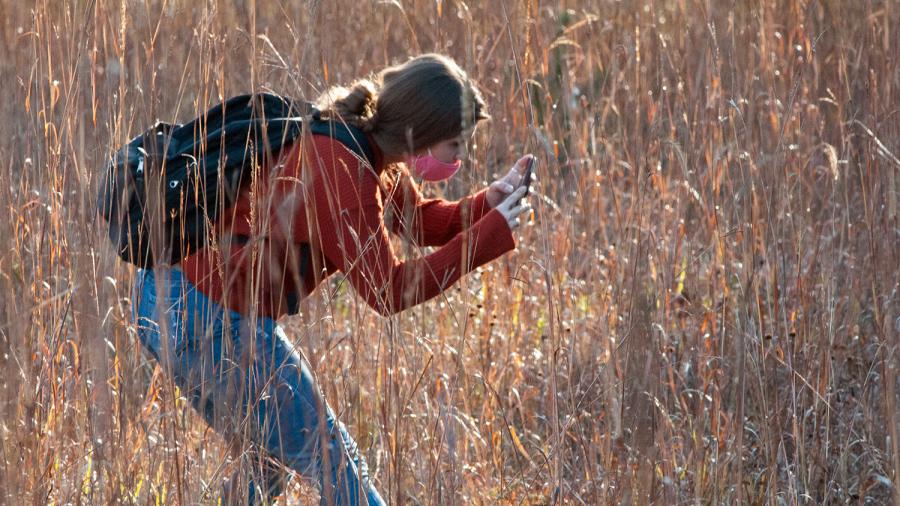
The university participates in Focus on Energy, Wisconsin's statewide energy efficiency and renewable resource program. Nearly $170,000 in incentives for completing energy efficiency projects is being reinvested, such as the planned installation of two electric vehicle charging stations.
Other campuswide “green” efforts include:
- Incorporating sustainable practices into building construction and renovation
- Switching in 2020 from coal to natural gas for campus energy to reduce emissions
- Maintaining a three-acre outdoor classroom with natural habitat
- Operating a campus garden, UW-Sprout, to provide locally grown and healthy food options to students, staff and University Dining Services
- A campuswide waste reduction system, with recycling and composting bins
- Promoting sustainable transportation options, such as bike rental, helping UW-Stout earn a national Bike Friendly campus rating, and rideshare programs
- Reusing and recycling campus surplus items, saving more than 215,000 pounds of material from landfills in 2023.
UW-Stout has most often placed first or second among Universities of Wisconsin schools and in the top 50 nationally in the Campus Race to Zero Waste recycling competition.
In 2010, UW-Stout became a tobacco-free campus after a ban was supported in two Stout Student Association student referendums.
Total package: Students earn two firsts, third in international sustainability challenges
Continue ReadingStudent government, which has instituted a Green Fee and Alternative Transportation Fee, and student organizations have committed more than $500,000 to sustainability-related projects since 2014.
The university has a Sustainability Office and seven committees on sustainability.
“We are honored to accept this award,” said Sustainability Manager Kadi Wright. “Putting together the application was truly a team effort as many departments and individuals assisted. The application highlights the wide range of sustainable changes and progress occurring on our campus and the many departments, programs and initiatives involved.”
Academically, UW-Stout offers a master’s degree in sustainable management, a bachelor’s in environmental science, and a minor and two certificates in sustainability.
Professors and students conduct water quality-based research through the federally funded LAKES research experience for undergraduates, Center for Limnological Research and Rehabilitation, and Freshwater Collaborative of Wisconsin grants.
Curriculum that educates about and promotes sustainability is woven throughout many academic programs, such as engineering, construction management, packaging and design.
###





